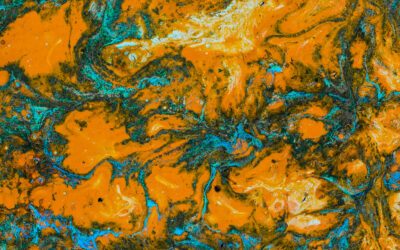Uncategorized
Neural correlates of the DMT experience assessed with multivariate EEG | Scientific Reports.
Studying transitions in and out of the altered state of consciousness caused by intravenous (IV) N,N-Dimethyltryptamine (DMT – a fast-acting tryptamine psychedelic) offers a safe and powerful means of advancing knowledge on the neurobiology of conscious states. Here we sought to investigate the effects of IV DMT on the power spectrum and signal diversity of human brain activity (6 female, 7 male) recorded via multivariate EEG, and plot relationships between subjective experience, brain activity and drug plasma concentrations across time. Compared with placebo, DMT markedly reduced oscillatory power in the alpha and beta bands and robustly increased spontaneous signal diversity. Time-referenced and neurophenomenological analyses revealed close relationships between changes in various aspects of subjective experience and changes in brain activity. Importantly, the emergence of oscillatory activity within the delta and theta frequency bands was found to correlate with the peak of the experience – particularly its eyes-closed visual component. These findings highlight marked changes in oscillatory activity and signal diversity with DMT that parallel broad and specific components of the subjective experience, thus advancing our understanding of the neurobiological underpinnings of immersive states of consciousness.
Harvard LSD Research Draws National Attention | News | The Harvard Crimson.
The Harvard Psilocybin Project propelled Harvard to the center of national media attention when details of the project’s administration of hallucinogenic drugs to students were exposed in the spring of 1962.
Psilocybin Ð Summary of knowledge and new perspectives – ScienceDirect.
Psilocybin, a psychoactive alkaloid contained in hallucinogenic mushrooms, is nowadays given a lot of attention in the scientific community as a reseaÉ
Psilocybin, psychological distress, and suicidality – PMC.
Hendricks et al. (2015) found that having ever used any classic psychedelic substanceÑnamely, dimethyltryptamine (DMT), ayahuasca, lysergic acid diethylamide (LSD), mescaline, peyote or San Pedro, or psilocybinÑwas associated with a significantly reduced likelihood of past month psychological distress (weighted OR = .81 (.72Ð.91)), past year suicidal thinking (weighted OR = .86 (.78Ð.94)), past year suicidal planning (weighted OR = .71 (.54Ð.94)), and past year suicide attempt (weighted OR = .64 (.46Ð.89)) in the United States adult population.
Talking DMT and ÒEntitiesÓ with Dr. Rick Strassman
Learn about DMT and how it affects our neuroplasticity. Dr. Rick Strassman discusses his experience with DMT, entities, and more.
The association of psychedelic use and opioid use disorders among illicit users in the United States – PubMed.
Experience with psychedelic drugs is associated with decreased risk of opioid abuse and dependence. Conversely, other illicit drug use history is largely associated with increased risk of opioid abuse and dependence. These findings suggest that psychedelics are associated with positive psychological É
Strange Origins, How Marvel Writers Were Inspired By LSD
Our article explores how visionary writers like MarvelÕs Steve Englehart turned to mind-altering substances like LSD to inspire his work.
Psilocybin-assisted group therapy for demoralized older long-term AIDS survivor men: An open-label safety and feasibility pilot study.
Psilocybin therapy has shown promise as a rapid-acting treatment for depression, anxiety, and demoralization in patients with serious medical illness (e.g., cancer) when paired with individual psychotherapy. This study assessed the safety and feasibility of psilocybin-assisted group therapy for demoralization in older long-term AIDS survivor (OLTAS) men, a population with a high degree of demoralization and traumatic loss.
Receptor location matters for psychedelic drug effects — ScienceDaily
Location, location, location is the key for psychedelic drugs that could treat mental illness by rapidly rebuilding connections between nerve cells. Researchers show that engaging serotonin 2A receptors inside neurons promotes growth of new connections but engaging the same receptor on the surface of nerve cells does not.










